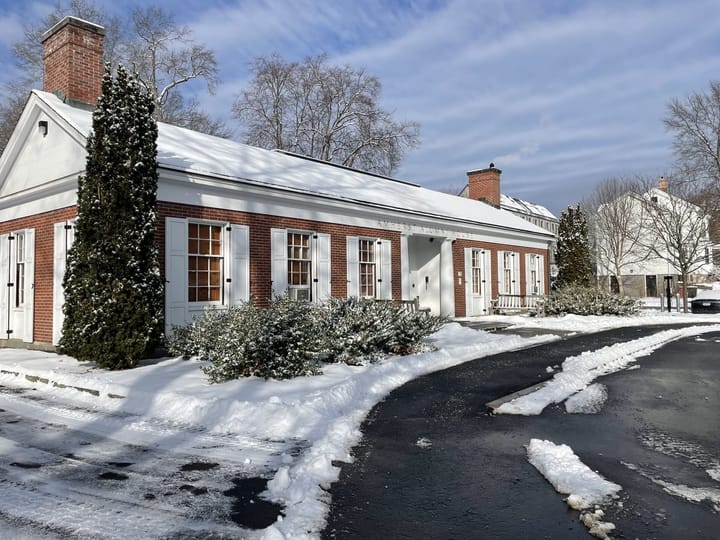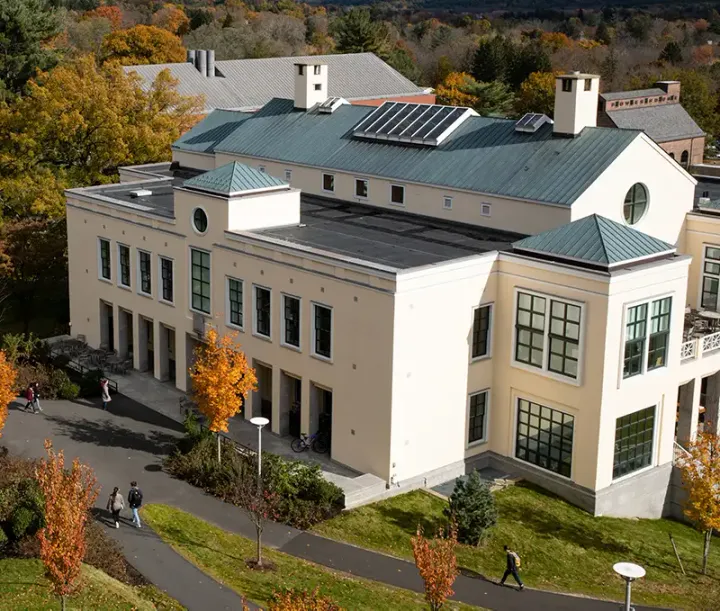After Attacks in Christchurch, Amherst Reflects
On Friday, March 15, two shootings occurred at two separate mosques in Christchurch, New Zealand while attendees participated in Friday prayer. Fifty people were killed and at least 50 more were injured in New Zealand’s largest massacre in modern history. The terrorist responsible was an Australian man who published a manifesto in which he laid out extremist views, some of which were in line with white supremacy.
The Christchurch shooting has had worldwide implications. According to FBI data released in 2017, anti-Muslim sentiment accounted for 18.6 percent of anti-religious hate crimes in the United States. In recent years, countries have seen an increase in anti-Muslim, anti-Semitic and other anti-religious attacks.
As word of the tragedy spread, Aqiil Gopee ’20 responded with tears. “I tried not to open the links [to news articles on the attack] because it was too much to deal with,” he said. It [became] so overwhelming that you have to look and see what is going on.”
Alizeh Shuaib Sethi ’19 described how news of the attack did not sink in until a more comprehensive list of the victims was released. Included in the list was the name of a young man who came from the same city in Pakistan as Sethi and had moved to New Zealand to pursue a career and support his family. “I could really relate to [the young man] so when I read about him in the shooting, it hit very close to home,” she said. Sethi attributes her delayed response to her desensitization to the sad reality that acts of terror have become a commonality in today’s society.
Mohammed Abdelaal, the Muslim spiritual advisor in the Cadigan Center, spoke at the afternoon prayer at a local mosque on Friday, March 22. He spoke about how people have become desensitized to acts of violence because of their seemingly regular occurrence in society. Abdelaal’s message called upon both Muslims and non-Muslims to “try to reflect, to learn and to improve ourselves and pray that this humanity is healed.”
Despite the devastating events, the response from Muslims has also been hopeful. Sarah Duggan ’20, president of the Muslim Students Association (MSA), commented that the immense grief resulting from the shooting has raised awareness for not only the Muslim community but also the reality that hate and discrimination exist in society as a whole.
Duggan also noted the integrity upheld by the Muslim community in spite of the tragedy. She recalled one article in which members of the mosque confirmed that the man who welcomed the shooter said “Welcome brother,” despite seeing the weapons on him. “This speaks to the peacefulness of the religion and is a good representation [of Islam],” Duggan added.
Harrison Blum, the director of religious and spiritual life at the college, said that there has been an outpour of support from civic and religious leaders from across the faith spectrum. At the local Hampshire Mosque, a sermon held on March 15 lifted up the values of equity, dignity, inclusivity and peace. Their underlying message advised attendees to “let us not respond with hate,” but rather return to and be grounded in the values of the faith.
Amherst held a vigil in memory of the victims of the attack on Tuesday, March 19. At the event, Blum reminded the community to “let there be a space for the heart” amidst Amherst’s fiercely intellectual and academically challenging environment. The community must remember to show compassion and support other members of the community.
In a separate interview, Blum emphasized the importance of humanizing across differences. “Relationships and simple exposure to people who are different, yet very similar to us, can be helpful” to bridge divides that may exist between religious groups and people of different ethnicities and backgrounds, said Blum.
Duggan added that students are welcome and encouraged to attend MSA meetings to talk or ask questions about Islam, adding that Islam “is a very peaceful and inviting religion.”





Comments ()